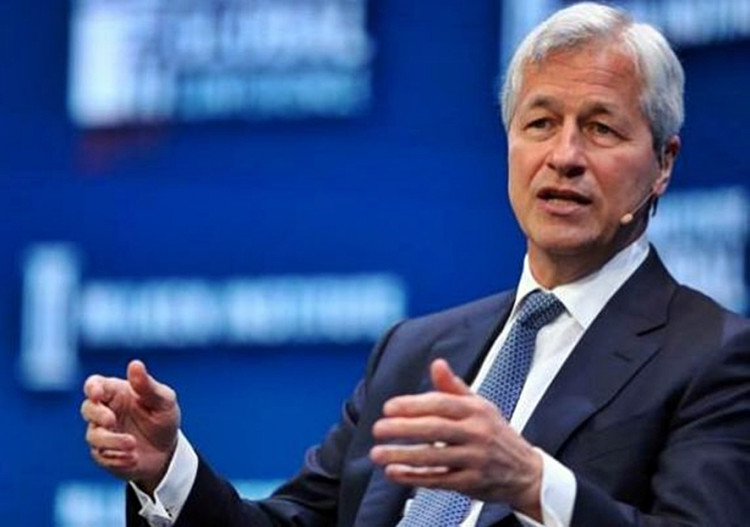Jamie Dimon, Chairman and Chief Executive Officer of J.P. Morgan Chase, wants the U.S. Federal Reserve to keep pumping money into the already robust U.S. economy so companies like his own can keep making massive profits at the expense of ordinary Americans.
Dimon identified the Fed's plan to withdraw quantitative easing as one of the two biggest threats to the U.S. economy, which is undergoing one of the longest expansions in history. The other threat to U.S. economic growth is a worsening of the trade war with China, according to Dimon. Quantitative easing or QE is also referred to as massive bond buying or large-scale asset purchases.
Dimon said the unwinding of the ongoing quantitative easing by the Fed, in which the central bank acquired government bonds and mortgage-backed securities worth more than $4.5 trillion since the Great Recession of 2008, is causing him great concern. The Fed's aim, and that of other central banks in resorting to quantitative easing in 2008 was to prevent the broader collapse of their economies and another ruinous Great Depression by pumping more money into their private sectors.
Since then, however, the U.S. economy has strengthened to the point where the Fed is confident enough to increase interest rates to rid itself of its massive bond assets.
In October 2017, the Fed began reducing its $4.5 trillion holdings of U.S. Treasury bonds and mortgage-backed securities by slashing up to $10 billion each month the amount of maturing securities it reinvests. That action began a gradual reversal of the three rounds of quantitative easing the Fed pursued between 2008 and 2014 to stimulate economic growth after the Great Recession.
The limit on Fed reinvestment will increase by $10 billion every three months to a maximum of $50 billion per month until the Fed's overall balance sheet falls by $1 trillion or more in the next few years.
Dimon warns of the possibility the Fed will have to hike interest rates faster than expected, thereby curbing growth.
"I don't want to scare the public, but we've never had QE," said Dimon. "We've never had the reversal. Regulations are different. Monetary transmission is different. Governments have borrowed too much debt, and people can panic when things change."
Adding to this risk is the fact the Trump administration will impose another round of tariffs on $200 billion worth of Chinese imports. Dimon claims he told the administration that he and other business leaders disagreed with Trump's tactics, but that Trump "obviously doesn't agree with us."






